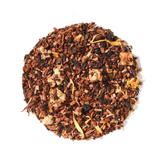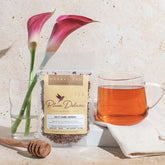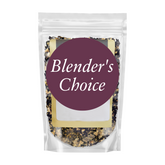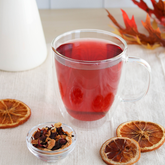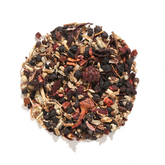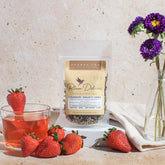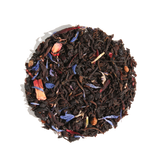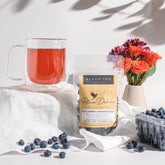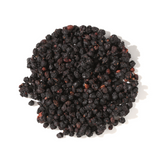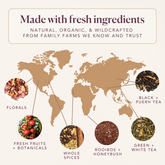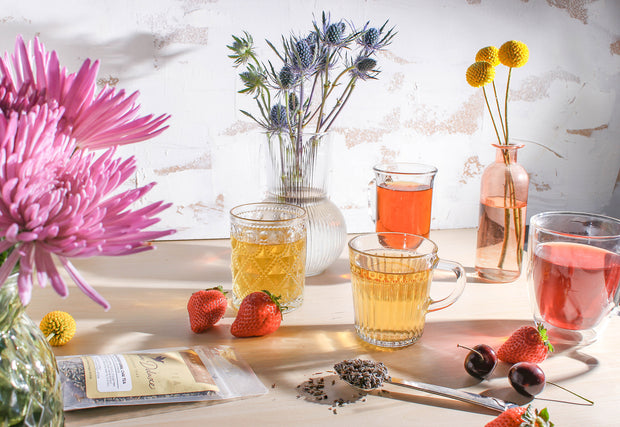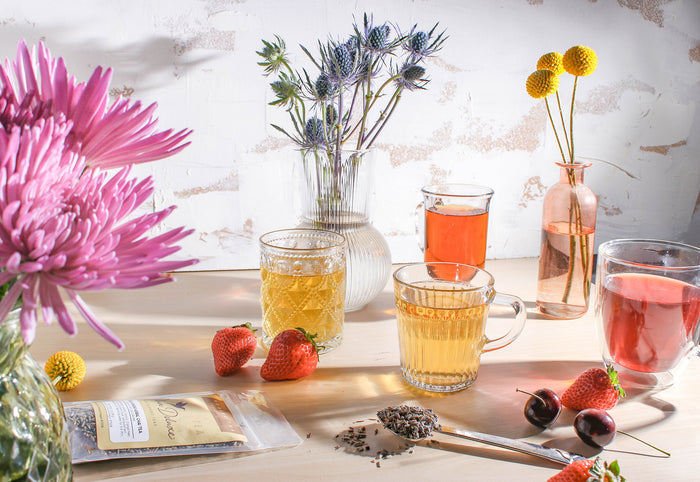Ugh! I’ve been there: My new Plum Deluxe tea just arrived. I cranked up my work level to earn a good break. I heated water, poured it over my favorite Queen’s Blend Green Tea leaves in the infuser, sat down to wait, and—gah!—I got distracted! Way more than four minutes passed, and my tea was bitter. Sigh.
But what makes tea bitter?
Bitter tea occurs more often with green and white teas than dark oolong, black, rooibos, or herbal teas, and is usually the result of one or more of the following:
- Quality of the tea leaves
- Steeping temperature is too high
- Steeping time is too long

Quality of the Tea Leaves
If you’re drinking Plum Deluxe tea, you’ve got good quality leaves. (I’m pretty sure it’s not ancient Plum Deluxe tea. Who can make it last that long?) If you’re drinking another brand of tea, it may be poor quality tea. It’s also possible that it’s meant to be bitter. No kidding.
Some teas—green teas, in particular—have a bitter (aka “astringent”) flavor that is cultivated and appreciated by some. Like beer and coffee, bitter tea is an acquired taste.

Steeping Temperature is Too High
Do you know that green and white teas are supposed to be steeped in water that is below boiling? It was years before I learned this.
Currently, I keep a digital thermometer by my electric kettle, and I measure the water temperature before pouring it over leaves in a mesh basket infuser. Eventually, when this kettle’s life has been lived to its fullest, I’ll get a kettle that allows me to set the desired temperature.
It’s not necessary to be that fussy, though. Tea is forgiving. Anything in the 170- to 185-degree Fahrenheit range is likely to be acceptable for a green or white tea. You can heat your water to a boil and just let it sit for a few minutes.

You should also read the brewing instructions, if possible. Plum Deluxe puts them on every package, listing the ideal temperature for steeping each blend. Blended teas can be different. For instance, the Afternoon ‘High Tea’ White Tea is steeped at a just-below-boiling temperature. That surprised me, but I’m new to white tea.

Steeping Time is Too Long
In my kitchen, this is what makes tea bitter because I have the attention span of a six-month-old black lab. Most of the time, I set the oven timer. Most of the time.
Again, take a look at the brewing instructions on the tea packet. Many teas steep for 3–5 minutes. That’s a substantial time difference, and you’ll need to experiment to find your ideal length of time. I know some tea drinkers who pour water over the leaves slowly and that’s it. Done. I, on the other hand, start experimenting with the longest recommended steeping time. It’s a matter of personal taste.
Other Reasons Tea Might Be Bitter
If you’re steeping high-quality tea leaves at the right temperature for the right amount of time, and you’re still not happy with the flavor, consider the following:
- Water quality: Hard water and treated water (think: chlorinated) will alter the flavor of the tea. Try filtered water or bottled spring water—not mineral water, which is too hard, and not distilled water, which is too soft.
- Water freshness: Water absorbs odors which can affect the taste. Pour or filter water just before heating.
-
 Adequate infuser space: Tea leaves unfurl and expand as they steep, releasing flavor. An infuser with limited space, like a tea ball, can become too crowded if overfilled and spoil the taste.
Adequate infuser space: Tea leaves unfurl and expand as they steep, releasing flavor. An infuser with limited space, like a tea ball, can become too crowded if overfilled and spoil the taste. - Too much tea: Seriously, this can be true. Astringency from too many leaves can overwhelm a delicate flavor. I like strong flavors, and using a heaping quantity of tea is one of my strategies, but sometimes it’s the wrong choice.
- Microwaving: Don’t try to brew tea in a microwave. The hot and rapid temperature increase is too harsh for delicate tea leaves.

Can You Fix Bitter Tea?
To salvage a bitter cup or pot of tea, try adding sweetener: sugar, honey, agave syrup, etc. Or you might try adding a pinch of baking soda. (If the tea tastes salty, you’ve added too much.) A final trick is to add ice to dilute it and enjoy iced tea.

Why is My Iced Tea Bitter?
Ummm... Did you just try to salvage bitter hot tea?
In addition to all of the above, what makes iced tea bitter might be something you’re adding: sweeteners, fruit juices, extracts, something else. It seems we add more to iced teas than warm teas. Try eliminating ingredients you’ve added to identify the culprit.
At some point, you may have to conclude that a particular tea is not for you. That’s okay. Give it to a tea-loving friend and see if they feel differently. Or better yet, arrange a tea swap and turn your bitter tea into a sweet trade!
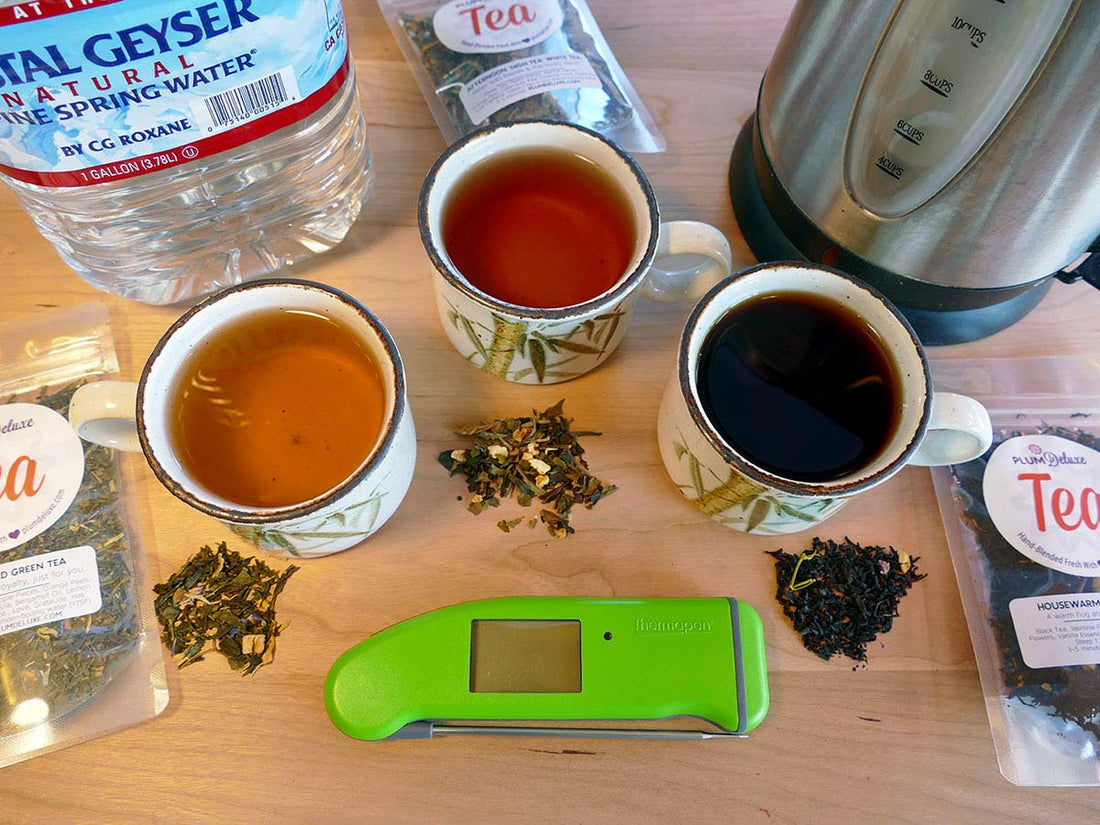
![Spring Break Tea Variety Pack [6-Pack Variety of Flavors]](http://www.plumdeluxe.com/cdn/shop/files/spring-break-pack.jpg?v=1740682266&width=165)

